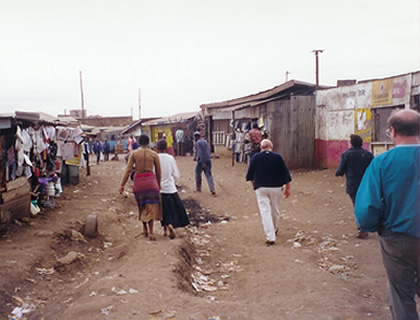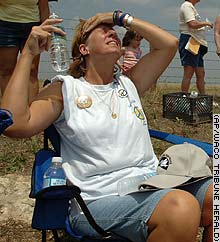Advice for First-Year Students
Welcome to Notre Dame! You can be justifiably proud that you have arrived at this great University. Now is the time to get to work. Here’s some advice about how this course and others like it will challenge you to make the most of your educational opportunities over the next four years.
- I know that you have all gone through different types of high schools, Catholic and secular, public and private, big and small, good and bad. The chances are good that your secondary education was based upon two pedagogical principles: description and memorization. Now, everything changes. In my class and, I hope, in every other social science class, the emphasis is on analysis and understanding. Thus, in my course, I will assume that you know lots of facts (or can learn lots of facts). In contrast, I am more interested in how you analyze those facts and assess their importance.
- You have a new challenge before you. You have been admitted to Notre Dame because you are smart. But now that you are here, your problem is that everyone around you is smart, too. The big question is what you do with this relatively banal attribute of your personality. One of the major reasons I will emphasize understanding, and not description, in this course is that I want you to acquire the tools to carve out your own path in the world. In the case of this course, if you can understand the meaning and significance of events in Iraq, Russia, Chile, Kenya, and other exciting places, you will be in a position to think for yourself. That's what it's all about.
- Ask yourself immediately: Why did I choose to attend Notre Dame? Generally, American college students self-select among the best Universities. There must have been something special about Notre Dame that caused you to choose it over other universities, such as Southwestern State U., USC, the Stanford Jr. University, or that school in Cambridge, MA. I know, athletics may have played a role in your thinking, or perhaps it was Notre Dame’s swinging dorm life. But Notre Dame is above all a great Catholic university. Is there something about this fact that shaped your thinking? What kind of education should a great Catholic university offer you that will distinguish it from the rest?
- You have been given the privilege of receiving a university education, unlike most people your age in most of the world (including even the advanced industrial world). Along with privilege comes great responsibility. From the first moment you are here, you should ask yourself not only what you want to do with your life but why your life should matter to the rest of humanity. At most universities, students are treated like little atoms in search of their own gain (“to bond or not to bond”). Because Notre Dame is a Catholic university, we expect much more of you
Consider the three images below. Can any university legitimately expect you to be indifferent to these politically-relevant phenomena? Could you tolerate one that would? The first image is of the nicest section of one of urban Africa’s largest shantytowns, Dandora, Kenya (note what passes for a sewer system in the middle and on the left sides of the photo). The second is of the Berlin Wall, which I experienced scores of times while living in East and West Berlin before 1989. Finally, the third is of Cindy Sheehan, whose son was killed in Iraq. She is currently staging a protest outside of President Bush's ranch in Crawford, Texas. By the way, we will discuss all of these themes in this course.

A photograph I took in Dandora, Nairobi, in 1999.
/Potsdamerplatzrev.jpg)
A view of the Berlin Wall (Potsdamer Platz) in 1981.

Cindy Sheehan Protesting in Crawford, TX
- At Notre Dame, we like to say that we take a special interest in the education of each and every student. If you have a professor who is indifferent to your education, then something is wrong. By the same token, you must also take personal responsibility for what you learn. Ultimately, it is up to you to work hard on your papers, attend class regularly, do your readings, and visit your professors during office hours. Your four years at Notre Dame will speed by, and then suddenly you will find yourself in a work-a-day world that is not always intellectually challenging. What if you did not read The Brothers Karamazov when you had the chance?
- Finally, enjoy your classes. I know, there are aspects of all classes that are not so uplifting. Still, there are a lot worse things you could be doing with the next four years, such as working in a cubicle, driving a truck, selling household appliances, or putting your life on the line in armed combat. Spiritually, we don’t really know why each of us has given us this special blessing, but you are making a huge mistake if you treat your studies like an immense drag.
Personally, I have a modest goal in this course. I want to totally transform the way you think about politics in the modern world. For this reason, I will go out of my way to provoke you, even if this means occasionally encouraging you to question everything you believe.
I am glad you are in my class. I look forward to meeting each of you during office hours.
AJM